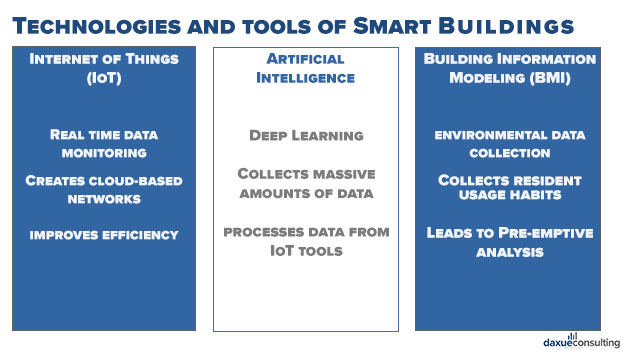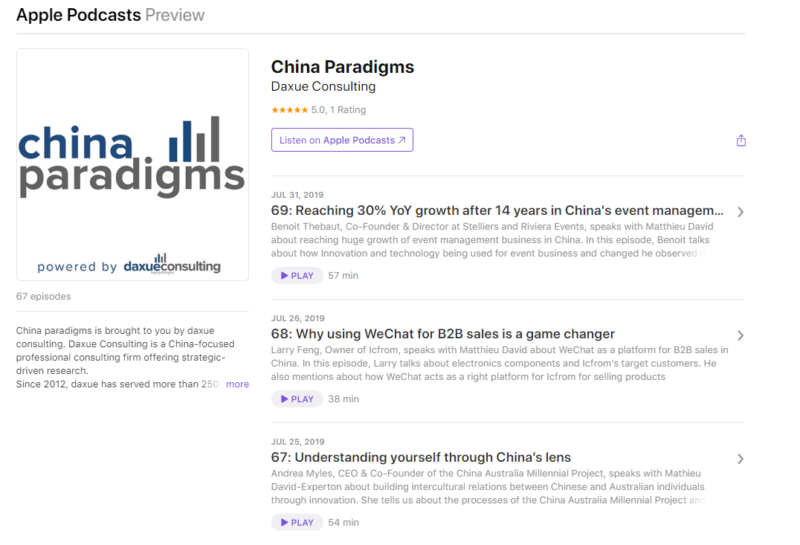The rise of smart technology in China
China is carrying out the process of creating ‘Smart Cities’. A smart city is an urban area that uses various kinds of information and communication technologies to increase operational efficiency and manage resources. Smart cities in China are comprised of smart technology. Smart technology is technology that makes use of digital technology and Artificial Intelligence (AI) to enable a level of cognitive awareness to perform functions that have traditionally been done by humans. This technology can make decisions without human intervention and employs machine learning and big data analysis to do so. IoT or the Internet of Things, is a prime example of how smart technology in China has developed. The rapid development of digital technology has allowed China to become the leader in technological races such as the race for 5G, and the development of China’s construction industry. Smart technology plays an integral role in the development of smart buildings in China.
Over the last 30 years, the country has taken on an overwhelming amount of construction projects to become the base of its modern urban landscape. Traditional urban infrastructure is not enough to keep up with the rate of China’s rapid urbanization. The smart building industry in China consists of applying smart technology to architecture, using new forms of materials, and improving sustainability. Thus, buildings have been and are becoming more multifunctional and environmentally friendly.
When compared to the United States, China took on a different approach to implementing smart buildings. China is focused on new construction, whereas the United States is focused on adding new technology to buildings that already exist. Smart buildings, often referred to as Intelligent urban infrastructure or Intelligent buildings, are a key feature of a smart city. A smart building is one that uses automated processes to automatically control the building’s operations.
Priorities of Smart Buildings in China
Improving sustainability and building tenant experience are all priorities of the smart building industry in China. To make buildings smarter, various digital technologies collaborate to provide companies with greater insights. These insights then enable the construction companies to better plan, design, construct and manage the infrastructure. Through reducing water and waste, efficient energy use, and building green spaces, smart cities in China are increasingly sustainable. Improving building tenant experience lies within the use of IoT tools to make the building comfortable and attractive to its potential tenants such as central ventilation systems for obtaining high indoor air purification capacities.
Technology of Smart Buildings in China
Smart technology in China plays a significant role in the development of smart buildings. Smart technology allows for building automation, or the automatic centralized control of a building’s heating, ventilation and air conditioning, lighting and other systems through a building management system. The Internet of Things (IoT), Artificial Intelligence (AI), and Building Information Modeling (BIM) are three main kinds of technology used.
The Internet of Things
IoT technologies are important to smart construction because they are tools that could provide potential benefits through real-time data monitoring such as temperature sensors, climate monitoring tools, air pollution levels, and security and surveillance systems. With IoT, companies achieve regulatory compliance and improve cost management. Through IoT solutions, machine learning and apps are used to make things more efficient.
Artificial Intelligence
As previously mentioned, Artificial Intelligence (AI) allows for technology to obtain a level of cognitive awareness. This means that AI can mimic how the human brain understands objects and environments, or what is termed deep learning. Through the recognition of patterns and correlating those patterns, computers can recommend conditions for improvement and maintenance for the building. AI apps are being used to collect amounts of massive of data through the processing of data collected from IoT tools. AI systems learn from any patterns present and use those patterns to make decisions for the building.
Building Information Modeling
Building Information Modeling (BIM) enables a company to gather various kinds of data on a building for analyzation to then guide efficiencies and improve operations. It can collect data from environmental information to resident usage habits, and so on. This data allows for easier planning and pre-emptive analysis to help with problem anticipation and resource maximization.

Smart buildings that can use less energy when supply is short and can store energy when it is plentiful are pursued in China. Buildings whom have been recognized by the government as an energy-saving building, or a green building, are awarded the LEED Gold certification. One example is the Siemens Center Shanghai (SCS).
Examples of smart buildings in China:
Glumac, Shanghai — Glumac is a Tetra Tech company and leader in sustainable design for building environments by providing expertise in sustainability and technologies and creating systems that optimize energy efficiencies and minimizing environmental impact. Glumac’s office is the first LEED Platinum v4 facility in East Asia and the first to pursue Living Building Certification for Net-Zero Energy, Water and Carbon. The building features an indoor air monitoring system that allows employees to see the toxicity levels of the indoor air on their mobile devices, 5 air purification systems, and a planted green wall to filter out outside pollution that enters the building.

Johnson Controls Asia-Pacific headquarters, Shanghai — Johnson Controls is a digital solutions company that offers building products, technologies, software, and services for the development of smart buildings. The Johnson Controls Shanghai headquarters received the IFC-World Bank Group’s EDGE (Excellence in Design for Greater Efficiencies) Certification, U.S. Green Building Council’s LEED (Leadership in Energy and Environmental Design) Platinum Certification, and the China Green Building Design Label Three Star Certification. Its sustainable design includes a central plant, renewable energy and intelligent lighting. Building materials include FSC certified wood and locally sourced products. Hybrid and electric vehicle charging stations are another feature of the headquarters which allows employees to commute with a reduced carbon footprint.

Smart buildings are the building blocks of smart cities in China
Overall, the trend of smart buildings in China is one that will continue to drive its urban landscape. As the rate of urbanization increase, the construction of new modern building will increase not only in size but will also improve in design. In the design of smart buildings, integration is key. The buildings should be able to address factors of safety, security, networking, easy monitoring and maintenance while using data driven operations. The develop of such buildings leverage the Internet of Things, Artificial Intelligence, and Building Information Modeling among many other digital technologies and big data. Smart buildings are transforming Chinese cities from those of heavy consumption to conservation—saving energy and resources— while increasing productivity, performance, and adaptability.
Let China Paradigm have a positive impact on your business!
Listen to China Paradigm on iTunes






